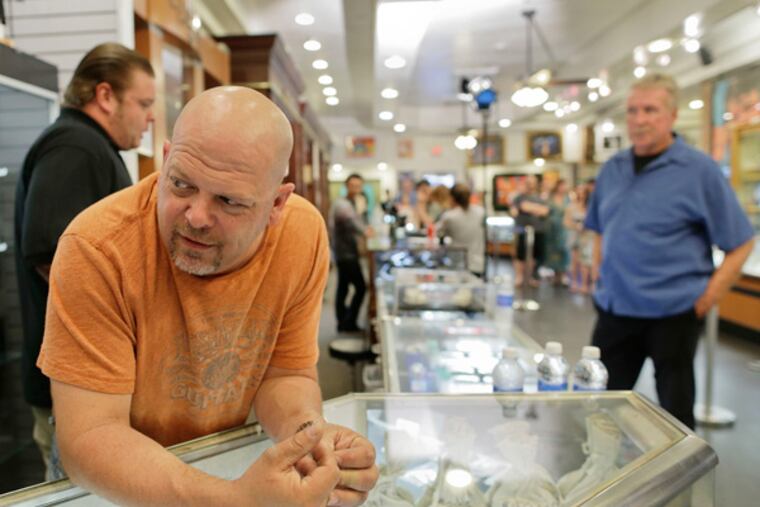Reality TV is very good for business
NEW YORK - There's no business like small business. Mix the high stakes of running a small business with a dash of family drama and throw in a camera crew and you get hit reality television shows such as Pawn Stars, Welcome to Sweetie Pie's, and Duck Dynasty.

NEW YORK - There's no business like small business.
Mix the high stakes of running a small business with a dash of family drama and throw in a camera crew and you get hit reality television shows such as Pawn Stars, Welcome to Sweetie Pie's, and Duck Dynasty.
Turning small-business owners into stars has become a winning formula for television producers, but some businesses featured in them are cashing in, too. Sales explode after just a few episodes are shown, transforming these nearly unknown small businesses into household names. In addition to earning a salary from starring in the shows, some small-business owners are benefiting financially from opening gift shops that sell souvenirs or getting involved in other ventures that spawn from their newfound fame.
Sales at Gold & Silver Pawn Shop in Las Vegas are five times higher than they were before Pawn Stars first aired in 2009. More people are pouring into the St. Louis restaurant featured in Welcome to Sweetie Pie's to eat its jumbo-sized fried chicken wings and six-cheese macaroni and cheese. And Duck Commander, seen in Duck Dynasty, is having trouble controlling the crowds in front of its headquarters in West Monroe, La.
"Sometimes it's hard getting from the truck to the front door," says Willie Robertson, who owns Duck Commander with his father and stars in the A&E series with his extended family.
It's a big change for a company that sells duck calls out of a part-brick, part-cinder-block warehouse on a dry, dead-end country road.
Since Duck Dynasty began airing in March 2012, Robertson finds at least 70 people waiting in front of the warehouse every morning asking for autographs and photos. Neighbors have complained about the mobs, and the police have been called.
Despite the trouble, the show has been good for the family business. Sales of the company's duck calls, which range from $20 to $175, have skyrocketed. In 2011, the company sold 60,000 duck calls. In 2012, the year the show began airing, the company sold 300,000.
Their income from doing the show may be going up along with the ratings. Duck Dynasty is the most-watched documentary-style reality series on TV right now, according to Nielsen, which provides information and insight into what consumers watch and buy. April's one-hour Season 3 finale was watched by 9.6 million people, making it the most-watched program in A&E's 29-year history. The Hollywood Reporter said the cast is demanding a raise to $200,000 an episode to do a fourth season.
Rick Harrison, the star of Pawn Stars, opened a gift shop. He sells mugs, T-shirts, bobbleheads, and refrigerator magnets in the back of his Las Vegas pawn store.
Harrison says the souvenirs bring in about $5 million in revenue a year. The pawn business brings in about $20 million a year, up from the $4 million before Pawn Stars aired.
The show, which follows people as they try to sell or pawn items ranging from gold coins to classic cars, also stars Harrison's son, his father and an employee named Austin "Chumlee" Russell.
People have been lining up outside the pawnshop since the reality show began airing on History in 2009.
Fame has disadvantages. Harrison says he wears a hat and sunglasses to disguise himself, even on visits to IHOP for pancakes with his kids. During an overseas vacation, he was swarmed by fans at the Tower of London.
"It amazes me," says Harrison. "I'm just a fat, middle-aged bald guy, but people still want to meet me."